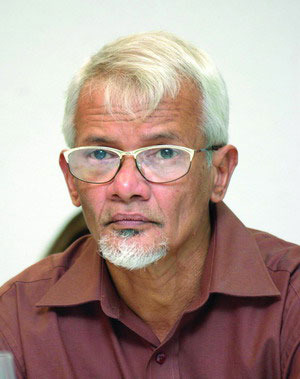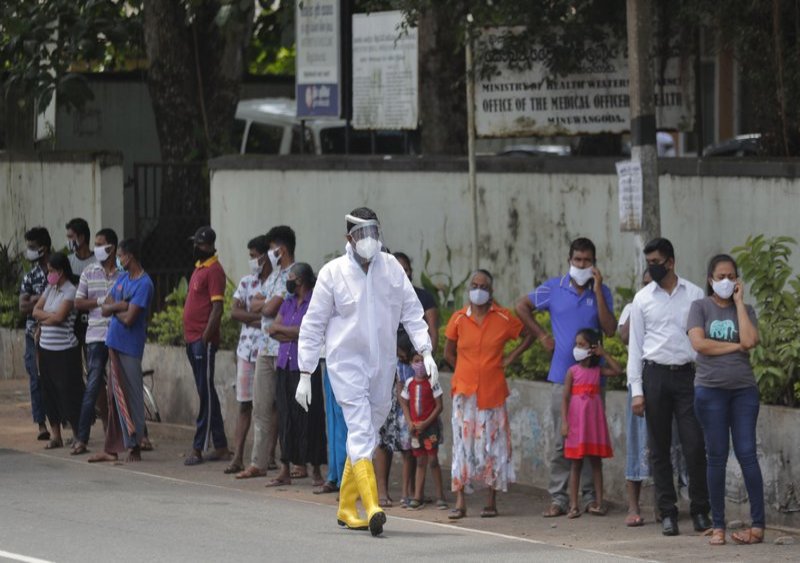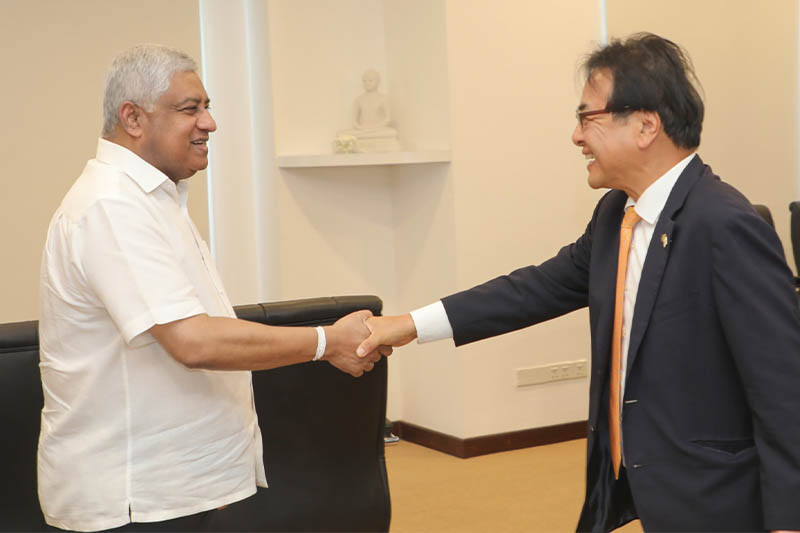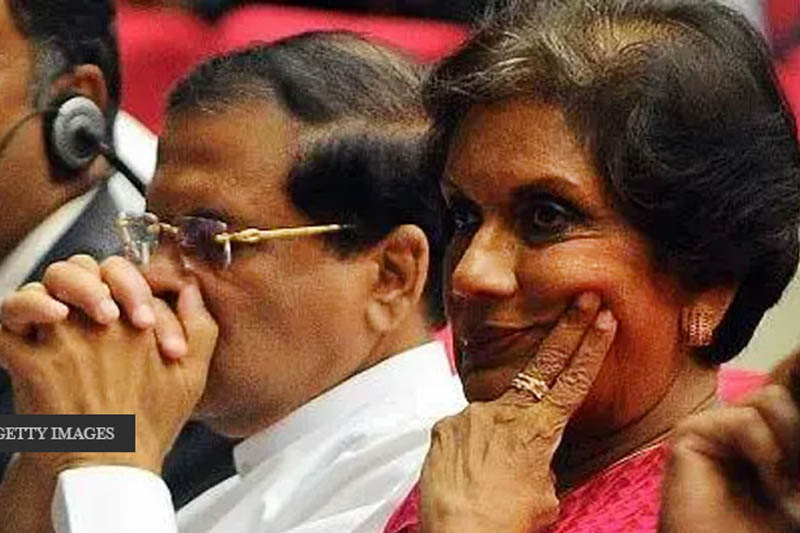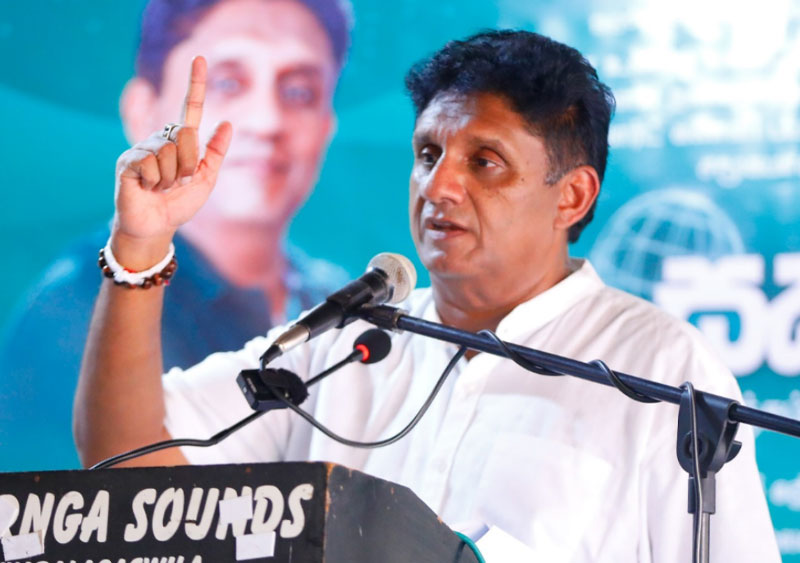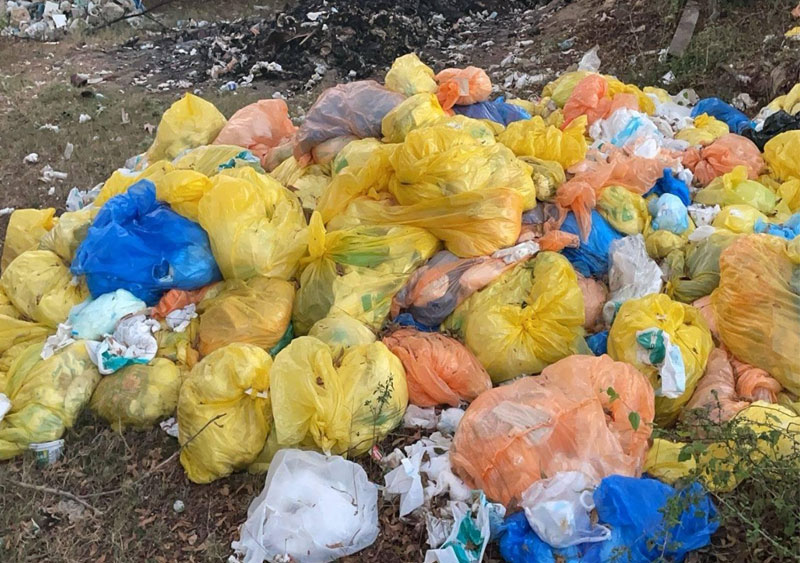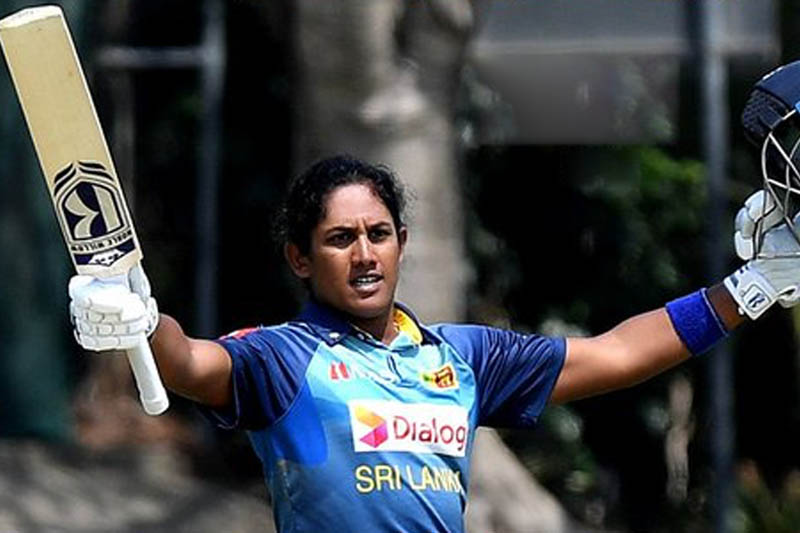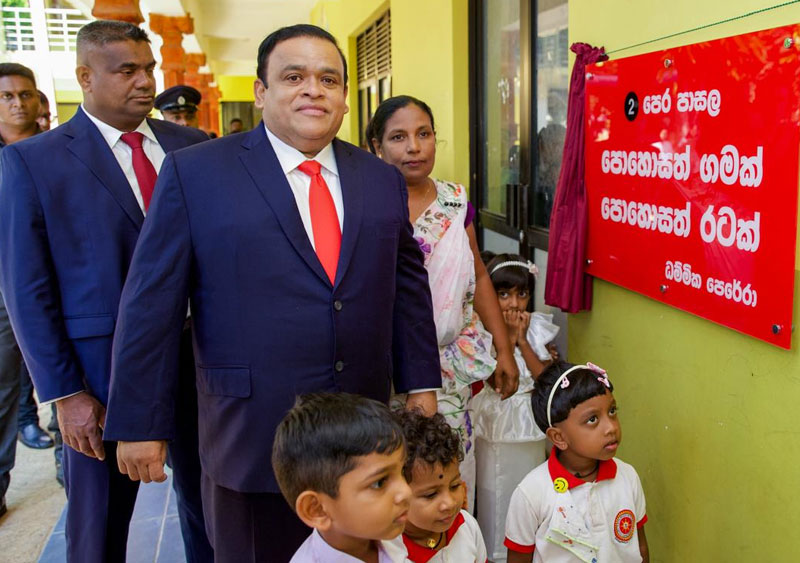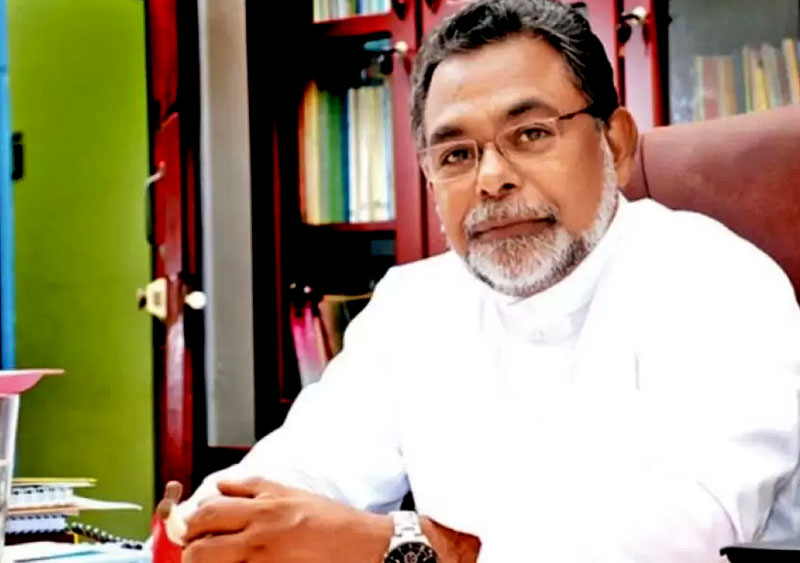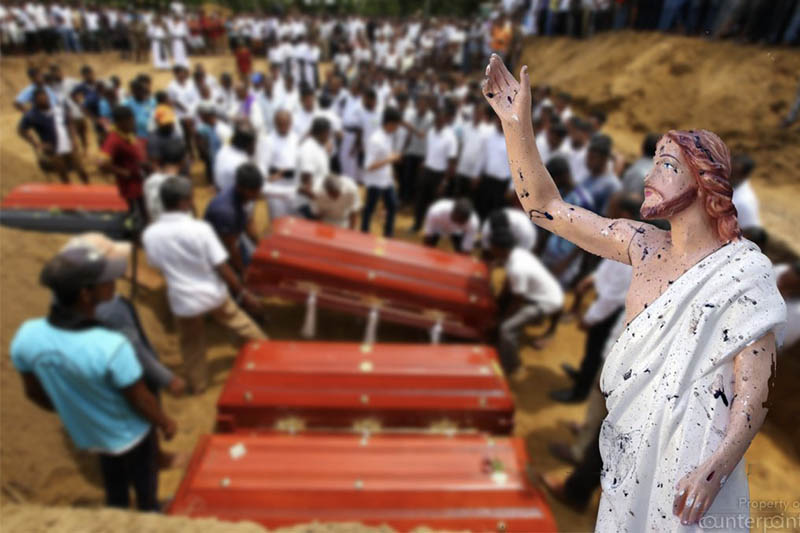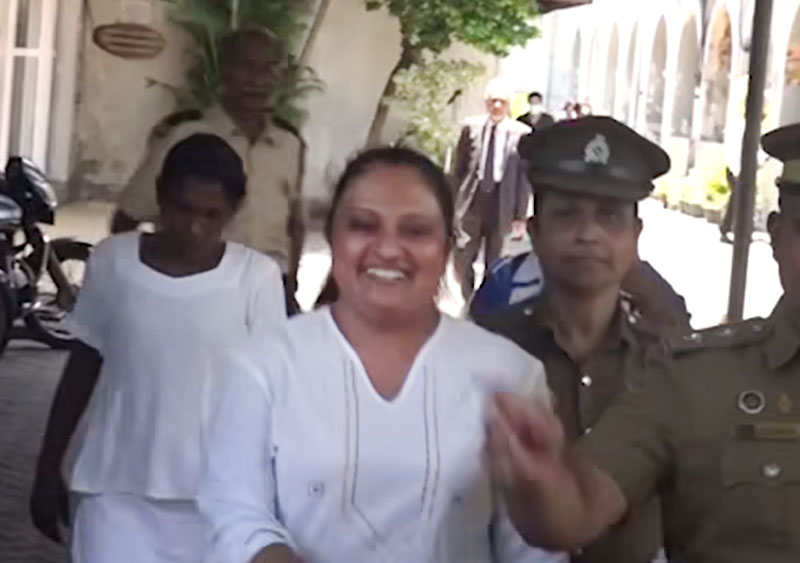The political and health crisis of Sri Lanka is galloping towards an inevitable catastrophe. Apparently there is no escape from it.
Both the ruling party and the opposition do not possess the capacity to play a pioneering and innovative role in changing this trend. There is no sign of the emergence of alternative leaders endowed with effective leadership attributes to play a constructive role in tackling the crisis which is characterized by uncertainty and growing intensity.
The number of various statements posted daily on social media amounts to thousands. The vast majority of them can be considered as those directed at criticizing the government and attacking the President while only a handful of statements can be considered as of intellectually significant.
There is hardly any posting aimed at analyzing the issues or suggesting a solution to the crisis.
Problem of Minorities
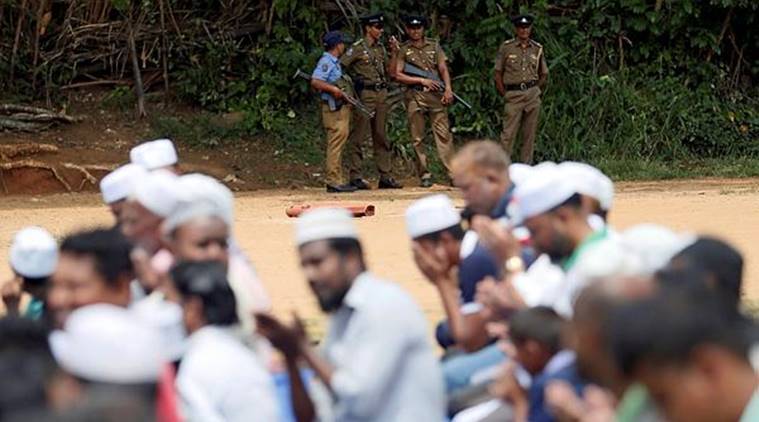 Muslim men pray as police officers stand guard after a mosque burned down following a clash between two communities in Digana central district of Kandy, Sri Lanka on March 9, 2018 (Reuters)
Muslim men pray as police officers stand guard after a mosque burned down following a clash between two communities in Digana central district of Kandy, Sri Lanka on March 9, 2018 (Reuters)
The failure of a country can be considered as a very rare occurrence which could happen due to special reasons.
A country might fall into such a situation when it follows a policy that allows the serious mistakes to persist for a long time without them being rectified so that the issues become solidified. That is why Sri Lanka has become a failed country.
The oppression of minorities has been an unresolved and enduring problem since independence. Consequently, there was heavy bloodshed and the economic damage caused to the country by resulting violent conflicts has been enormous. But no Head of State in Sri Lanka has taken it as a serious issue that needs to be addressed for the common good of the country.
Although President Rajapaksa was able to defeat the LTTE militarily, he did not address the legitimate grievances of the Tamil people; nor did he offer a reasonable solution for them. Even the Yahapalana Government that came to power after that did not solve their problem. Now it has become a stagnant issue with no solution.
The Judiciary
The things related to the judiciary too, have happened in a similar manner. The Soulbury Constitution vested the judiciary with the “power of review” that empowered the judiciary to veto any law or bill contrary to the constitution. It was an indispensable power required for ensuring the independence of the judiciary.
Dr. Colvin R de Silva, the Minister of Constitutional Affairs in the Cabinet of 1970-77 government stripped the judiciary of the power of review by the 1972 Constitution.
Thereafter, JR Jayewardene, by 1978 Constitution restored the power of review to the judiciary, but only partially, and within a very limited framework.
The constitutional recognition of the rule of law was abolished by the 1978 Constitution, and the President was placed above the law, thereby subordinating the Judiciary to the Executive.
Thereafter, in 1999, President Chandrika Bandaranaike turned the judiciary into a political pawn of the Executive by appointing a person (Sarath Silva) against whom an inquiry had been initiated by the Supreme Court over allegations of corruption, to the post of the Chief Justice.
After that, the grip of the Executive on the Judiciary was further tightened during the Rajapaksa regime by removing the incumbent Chief Justice (Shirani Bandaranayake) from office, who had fallen from the grace of the Executive, in an illegal and a very rude manner, and filling the vacancy with a political crony.
Although the Yahapalana Government offered the Legislative Council the authority to recommend the appointment of Judges to the High Court, it did not possess a broader vision of giving independence to the judiciary.
The Yahapalana Government did not want to remove the constitutional provisions on presidential immunity, and restore the “power of review” that had been snatched away from the judiciary which was contrary to the law.
Subsequently, the 20th amendment conferred the President sole and unfettered discretion to appoint all judges of the superior courts, thus maximizing the degree of submissiveness of the Judiciary to the Executive.
The policy to be followed by the government regarding the court decision on the Colombo Port City Commission Bill is likely to be the best and latest example of the current state of the rule of law in Sri Lanka.
As per the ruling of the Supreme Court, 14 clauses of the Bill require the parliamentary approval by a two-thirds majority and six other clauses two-thirds majority and an additional approval by a referendum.
Moreover, it is also suggested that the Bill could be passed by a simple majority with due amendments to the draft. To do that, the impact of the proposed bill has to be diluted.
Now the government has chosen the path that allows the approval of it by a simple majority. Does this mean that the government is going to grant to China a diluted legislation? Or else is it going to achieve its original objective in a roundabout way under the passage through a simple majority?
President and the Ministers
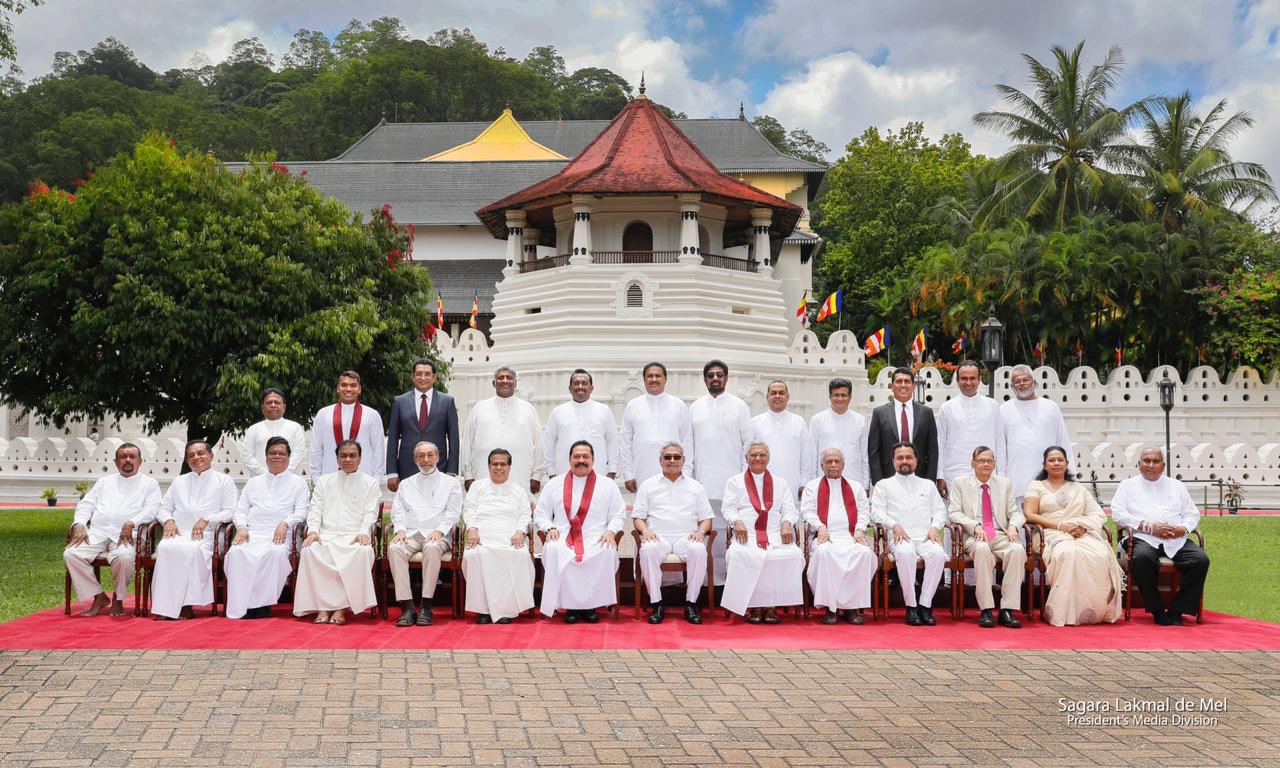 President Gotabaya Rajapaksa and the Cabinet of Ministers (President's Media Division)
President Gotabaya Rajapaksa and the Cabinet of Ministers (President's Media Division)
Since 1978, the persons elected to the office of the President have pursued a policy of misappropriating public property which was under their temporary custody. Later, it developed and escalated into a massive practice of looting the public property in the country.
From the very beginning of this system, the government Ministers and MPs were given the opportunity to transact business with the government allowing them to make a fortune.
This practice was allowed to prevent a backlash from the government MPs against the undue privileges enjoyed by the President.
On rare occasions when the law was enforced against them, the President used to protect them by using the presidential immunity enjoyed by him.
This corrupt system did not stop at polluting the entire institutional system of the state; instead, it led to plunging the state into the brink of bankruptcy as the important sources of revenue to the Treasury have fallen into the hands of the politicians.
It is an essential condition of good governance to prevent the abuse of public property by the Presidents, Ministers and Members of Parliament, which is contrary to the law.
But the Yahapalana government did not incorporate this important factor in the reforms package it brought about. The omission could not be due to an oversight.
The next most important point here is that the party leaders or political parties representing the Parliament are not agreeable to engage in any dialogue on the illegal right enjoyed by the public representatives ranging from the President to those who are elected to Parliament, the Provincial Council or the local government bodies, to acquire wealth by engaging in business transactions with the government. The political leaders and the political parties can correct me if my opinion in this regard is wrong.
There is a role that the public also could and should play in changing this ugly situation.
They could demand the political leaders to analyze the crisis and propose solutions.
They could insist on the political leaders to present their views on the issue of people's representatives including the president acquisitioning and amassing wealth through improper and illegal means.
There is a great deal of work that can be done by public pressure. It is time now that the people must realize that Sri Lanka is being swept into a disastrous catastrophe.
Victor Ivan
